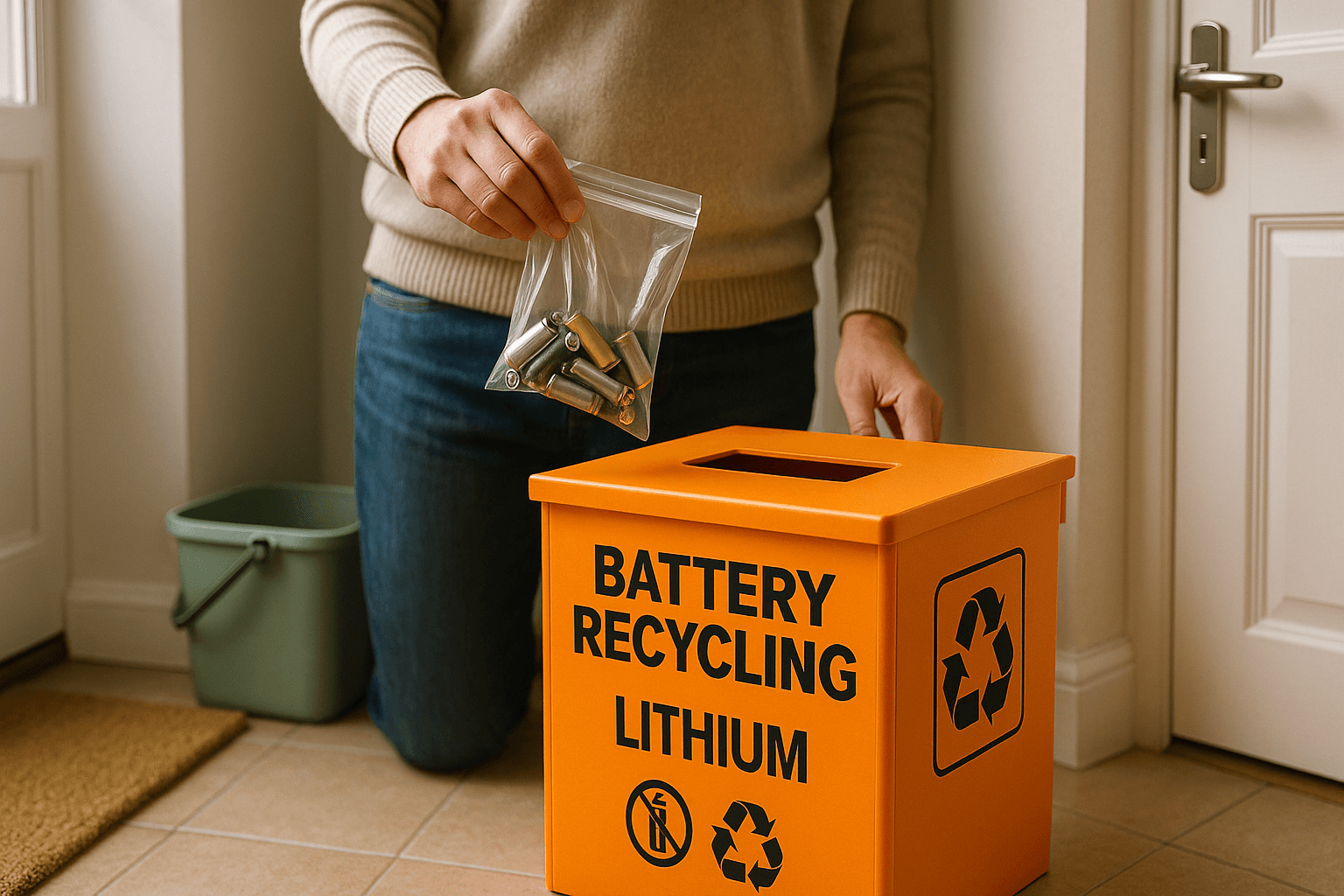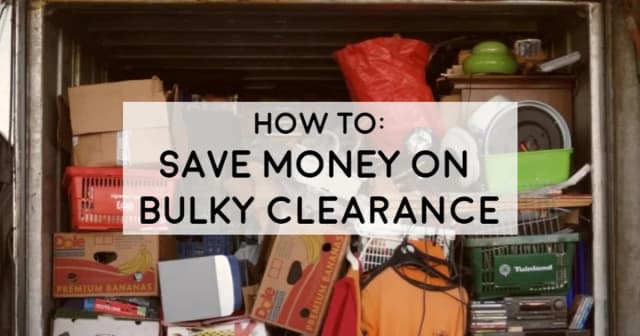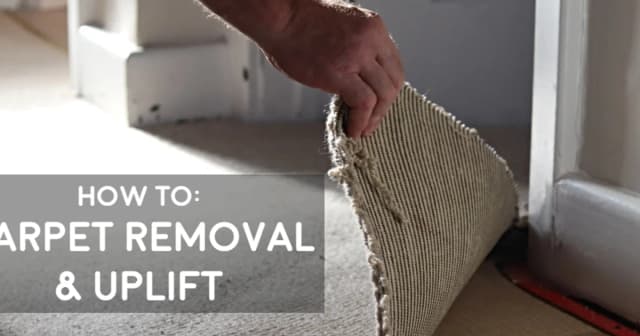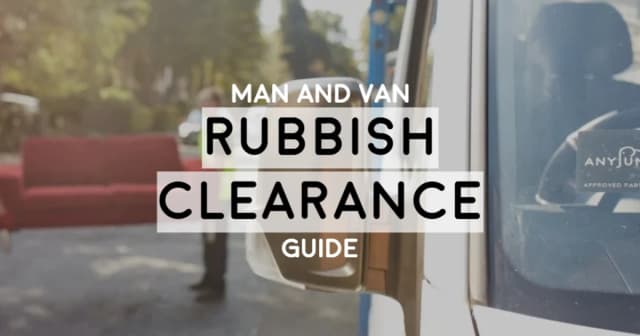Lithium Battery Disposal - A Simple Guide for UK Householders

15 October 2025
Lithium batteries power countless household items — from phones and laptops to e-bikes and cordless tools. But when they run out, lithium battery disposal must be handled with care. If thrown away with normal rubbish, these batteries can leak chemicals or even start fires.
Never put lithium batteries in your household waste or mixed recycling bin. Instead, take them to an authorised battery recycling collection point or household waste recycling centre (HWRC). These sites ensure that batteries are stored safely and the valuable materials inside are properly recovered.
If you’re unsure how to recycle larger lithium-ion batteries — such as those used in power tools or garden equipment — contact your local council or a licensed waste collector. Services like AnyJunk make it easy to arrange safe collection and lithium battery recycling from your home.
⚠️ Why Safe Lithium Battery Disposal Matters
Improper disposal of lithium batteries poses serious risks. Damaged or crushed batteries can ignite when mixed with other waste, leading to fires in bins, lorries, and recycling facilities. They also contain metals and chemicals that can pollute soil and water if not handled correctly.
You can read more about these hazards on the Environment Agency’s battery recycling guidance. By disposing of your lithium batteries responsibly, you help protect waste workers, prevent pollution, and conserve valuable raw materials like cobalt and nickel.
🧠 How to Identify Lithium-Ion Batteries
Many rechargeable batteries are lithium-ion, but they’re not always labelled clearly. Look for wording such as Li-ion, Lithium, or Li-polymer on the battery or device casing. Common examples include:
Mobile phones, tablets, and laptops
Power tools and cordless garden equipment
E-bikes, scooters, and hoverboards
Cameras, drones, and rechargeable torches
If you’re unsure, assume it’s lithium-based and recycle it using a dedicated battery collection service.
🗑️ Safe Lithium Battery Disposal Options in the UK
1. Battery Recycling Collection Points
Most supermarkets, DIY stores, and electronics retailers have small battery recycling bins near their entrances. You can drop off AA, AAA, and button-cell batteries here safely — check Recycle Your Electricals for a searchable map of collection points.
2. Council Recycling Centres
Local councils accept batteries and small electricals at household waste recycling centres. Use Recycle Now’s locator tool to find your nearest site.
3. Retailer Take-Back Schemes
Many electronics shops are legally required to accept old batteries and small electricals when you buy replacements. You can verify a retailer’s obligations under the Waste Batteries and Accumulators Regulations 2009 .
4. Licensed Waste Collection Services
If you have large or mixed quantities — for example, from home renovations or clear-outs — companies like AnyJunk can collect and recycle them for you. It’s a simple, compliant solution that ensures your lithium battery disposal meets all UK regulations.
🚫 What Not to Do with Lithium Batteries
❌ Don’t put them in household rubbish or recycling bins
❌ Don’t crush, puncture, or burn them
❌ Don’t store large numbers together without insulating terminals
❌ Don’t mix them with other metal waste
Even small damage can trigger a dangerous short circuit or fire. See BBC News: Why lithium batteries are causing so many fires for real-world examples.
🌍 Help Create a Safer, Cleaner Environment
By following these steps for lithium battery disposal, you help prevent fires, reduce landfill waste, and support responsible recycling. It only takes a few minutes to drop off or book a collection — but it makes a big difference for safety and sustainability.


